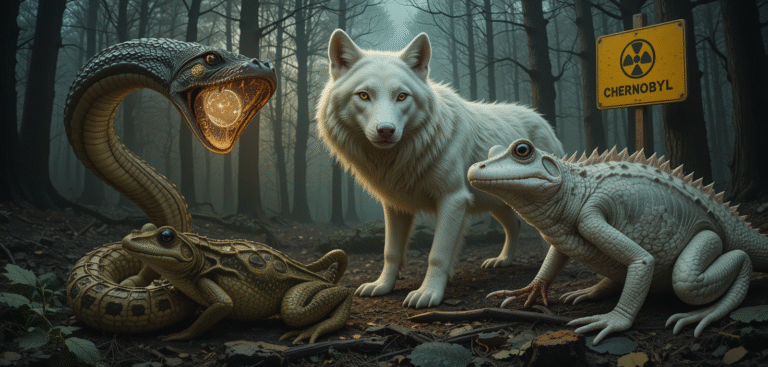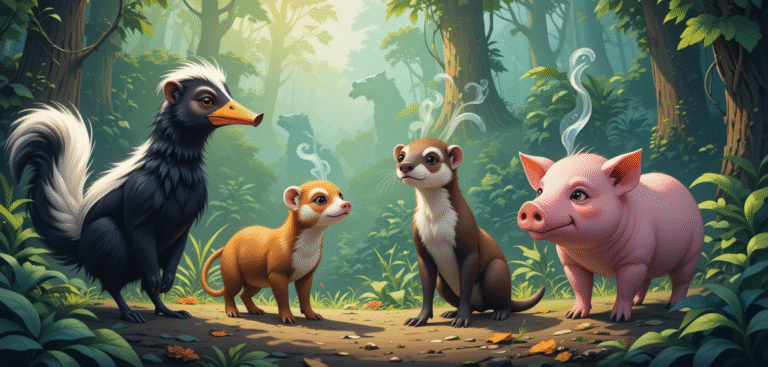Dumb Animals: Nature’s Most Lovable Airheads
In the vast tapestry of the animal kingdom, intelligence manifests in myriad ways. While some creatures astound us with their cognitive prowess, others charm us with their endearing simplicity. This article delves into the world of dumb animals, exploring their behaviors, misconceptions, and the reasons behind their perceived lack of intelligence.
Understanding the Term “Dumb Animals”
The term “dumb animals” often refers to creatures that exhibit behaviors humans interpret as lacking intelligence. However, it’s essential to recognize that what we perceive as “dumb” may be adaptations suited to specific environments or survival strategies.
Top 10 Dumb Animals: A Closer Look
Let’s explore a curated list of animals often labeled as the most dumb animals, understanding the reasons behind these classifications.
1. Turkey
Turkeys are notorious for their lack of situational awareness. Anecdotes abound of turkeys staring skyward during rainstorms, leading to unfortunate outcomes. Their tendency to panic and poor problem-solving skills contribute to their reputation as really dumb animals.
2. Sloth
Sloths are the epitome of lethargy. Their sluggish movements and slow metabolic rates make them vulnerable to predators. While their energy-conserving lifestyle suits their environment, it often earns them a spot on the dumb animals list.
3. Koala
Koalas possess small brains relative to their body size. Their diet of eucalyptus leaves, which are low in nutrients, requires them to sleep up to 20 hours a day. Their limited adaptability and dietary specialization contribute to perceptions of them as cute dumb animals.
4. Ostrich
Despite their impressive size and speed, ostriches are known for their peculiar behaviors, such as burying their heads in the sand when threatened—a myth, but their actual responses to danger aren’t much more effective.
5. Panda
Pandas have a reputation for being big dumb animals due to their low reproductive rates and dietary choices. Despite being carnivores by classification, they primarily consume bamboo, which offers minimal nutritional value.
6. Cane Toad
Cane toads are infamous for their indiscriminate eating habits, often consuming harmful substances. Their invasive nature and lack of ecological awareness have led to environmental issues in regions they’ve been introduced to.
7. Goblin Shark
This deep-sea dweller has a slow metabolism and sluggish movements. Its primitive features and lack of adaptability place it among the most dumb animals in marine environments.
8. Jerboa
Jerboas are small rodents with erratic movements and limited cognitive abilities. Their unpredictable behavior and lack of social structures contribute to their inclusion in discussions about dumb animals.
9. Flamingo
Flamingos, despite their elegance, have been observed engaging in repetitive behaviors without clear purpose. Their reliance on social cues over individual decision-making can be seen as a lack of intelligence.
10. Slow Loris
The slow loris moves at a glacial pace and exhibits limited problem-solving skills. Its sluggishness and vulnerability have led to its classification among really dumb animals.
Related: Smelly Animals: Nature’s Funky Creatures Uncovered
Are Sheep Dumb Animals?
Sheep are often labeled as dumb animals due to their flocking behavior and perceived lack of individual decision-making. However, studies suggest that sheep possess a level of intelligence that includes facial recognition and emotional awareness. Their behaviors are more about survival instincts than stupidity.
Are Pandas Dumb Animals?
Pandas’ reliance on bamboo, low reproductive rates, and general inactivity have led to debates about their intelligence. While they may not exhibit high cognitive functions, their behaviors are adaptations to their specific ecological niche.
Are Deer Dumb Animals?
Deer are frequently involved in vehicle collisions, leading to perceptions of them as dumb animals. However, their behaviors are instinctual responses to threats. Their acute senses are geared towards predators, not vehicles, which explains their seemingly irrational actions near roads.
Are Goats Dumb Animals?
Goats are often underestimated. While they may engage in curious and sometimes reckless behaviors, studies have shown that goats possess problem-solving abilities and can learn tasks through observation, challenging the notion of them being dumb animals.
The Science Behind Animal Intelligence
Assessing intelligence across species is complex. Factors such as brain size, social structures, and adaptability play roles. It’s crucial to consider that what humans perceive as intelligence may not align with survival strategies in the wild.
Related: Muddy Animals: Nature’s Dirtiest Yet Most Adorable Creatures
Funny Dumb Animals: A Lighthearted Perspective
The internet is replete with memes and videos showcasing animals in humorous situations, reinforcing stereotypes of funny dumb animals. While entertaining, it’s essential to approach these portrayals with an understanding of the animals’ natural behaviors.
Conclusion: Rethinking “Dumb Animals”
Labeling animals as “dumb” often stems from anthropocentric perspectives. Many behaviors deemed unintelligent are, in fact, evolutionary adaptations. By understanding the context of these behaviors, we can appreciate the diversity and complexity of the animal kingdom.
FAQs About Dumb Animals
Q1: What are some dumb animals?
A: Animals often labeled as dumb include turkeys, sloths, koalas, pandas, and ostriches, primarily due to behaviors that seem illogical from a human perspective.
Q2: Are sheep considered dumb animals?
A: While sheep exhibit flocking behavior, they possess cognitive abilities like facial recognition, challenging the stereotype of them being unintelligent.
Q3: Why are pandas considered dumb animals?
A: Pandas’ low reproductive rates and dietary choices contribute to perceptions of low intelligence, though these are adaptations to their environment.
Q4: What causes animals to be labeled as dumb?
A: Behaviors that appear illogical or counterintuitive to humans often lead to animals being labeled as dumb, though these actions may have evolutionary purposes.
Q5: Are there any truly dumb animals?
A: Intelligence varies across species, and what may seem dumb to humans could be an effective survival strategy for the animal in question.







